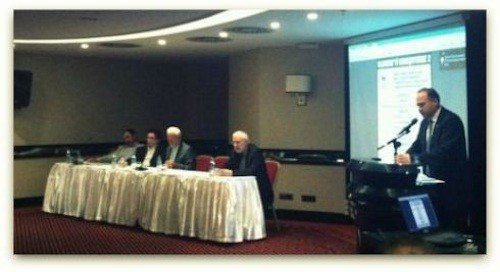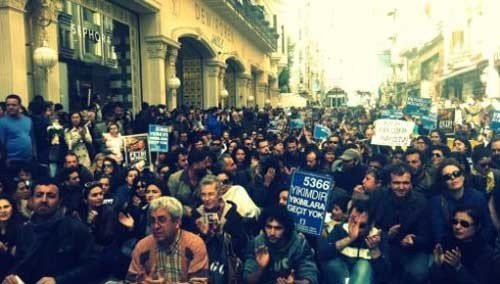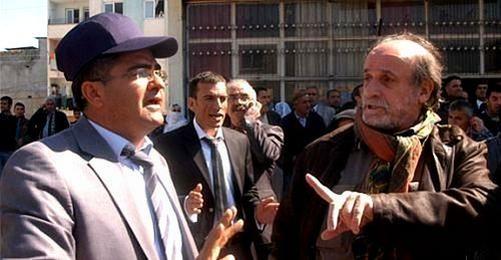The revised Civli Procedure Law (HMK) has been enforced as of 1 October 2011. Article 120 of the new law reads as follows:
Expenses and advanced payment: Article 120 - (1) The plaintiff shall pay the expenses of the judiciary process in advance when opening the trial. The advance tariff shall be determined each year by the Ministry of Justice.
(2) Should the court understand in the course of the trial that the advance payment was insufficient, it shall allow the plaintiff to complete this shortcoming within two weeks.
Cash Justice System
The law requires everybody who opens a lawsuit to pay in advance. No matter if the person seeking justice is a worker, a woman who tries to file a divorce case or somebody who wants to sue out a compensation for experienced violence - everybody has to pay in advance in order to reduce the workload of the judiciary.
The amount to be paid in advance also includes fees for experts and the investigation.
Only the people who are too poor to cover the costs of litigation are entitled to apply to the district headman, the elected head of a neighbourhood executive office, in order to obtain a document proving their poverty and hence to receive legal assistance. In this case, the state is going to cover all cost and expenses.
"The problem is the budget allocated to the judiciary"
bianet talked to Labour Law expert lawyer Mebuse Tekay about the new law. Tekay announced that Article 120 of the revised HMK applied to all courts except administrative and criminal court and thus constituted a restriction to the freedom to seek one's rights.
"Speeding up judiciary processes can only be achieved by increasing the budget allocated to the judiciary and not by creating new obstacles before the freedom to seek one's rights", Tekay criticized.
The problem of late payment is indeed slowing down the judiciary system in Turkey significantly: "You have three months to pay the fee for an expert for example. The hearing is being postponed until the investigation expense has been covered. These delays affect the speed of judicial processes of course. However, this problem is related to the amount allocated to the judicial system from the budget" Tekay explained.
The lawyer continued, "The state allocates the lowest share of the budget to the judiciary, i.e. less than two percent. Increasing the judiciary's share to more than two percent was possible only once all through the history of the Republic. The reason for a jammed judiciary is the insufficient budget. This lack will not be closed via the people who are seeking their right".
Solution: Legal Aid System
Tekay highlighted that a legal aid system like in Europe would have to be established in order to solve the problem. "In a legal aid system, a person applying to court is being charged a fee for the application and the procedures if this person's income ranges above a certain level. Applicants below this level of income can seek their rights without paying the state for cost and expenses.
Figures
The amount due depends on the case but according to the Akşam newspaper, the new regulation stipulates to pay in advance a notification fee according to the number of parties multiplied by five at maximum. The notification fee is TL 6 (€ 3).
The plaintiff also has to pay in advance a fee related to the number of witnesses named in the petition. In case the number of witnesses has not been determined in the petition, the litigant has to pay the fee for at least three witnesses and the related notification fees. The witness fee is determined in the new tariff between TL 15-30 (€ 7-15) per person.
Investigation cost ranges at about TL 200 (€ 100); expenses for transportation related to the investigation are set at TL 75 (€ 37).
Fees for experts range between TL 150 and 300 (€75-150). (IC/VK)













